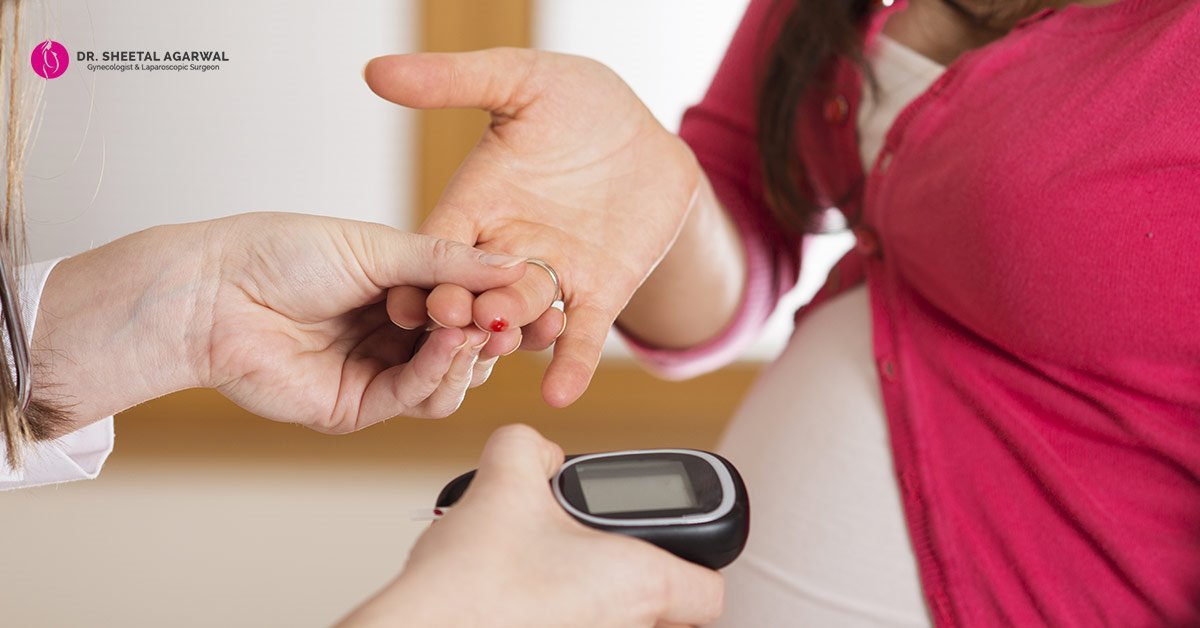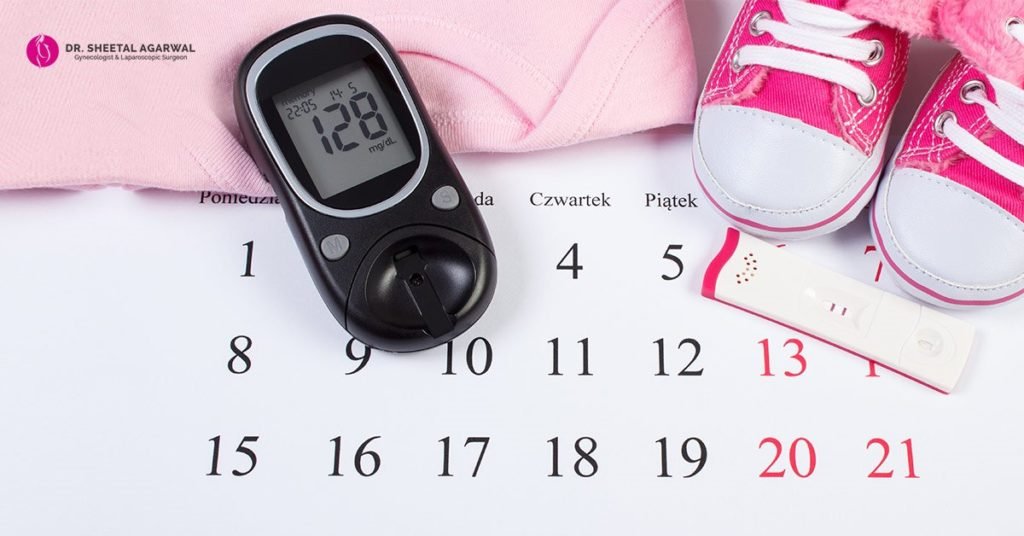Are you an expecting mother fighting diabetes for your baby? It is either because you had a pre-existing diabetes or because your hormones went haywire during the pregnancy and gifted you the condition to tackle. If you are one with the latter, it means you have developed gestational diabetes. Whatever be the case, there are some crucial questions that need to be answered. The answers to these will help you control diabetes in pregnancy and have a healthy baby delivered without any complications.
This article will become your friend and help you find answers to those questions.
Q1. What to eat and what not to eat in order to control diabetes in pregnancy?
When it comes to diet, the first and foremost advice any diabetologist would give you is to avoid sugars. Along with that, you need to avoid starchy foods like white bread, potato, rice, tapioca (sabudana), pasta and similar white beasts. Hidden sugars like those in alcohol, processed foods, fast food etc. are things you need to stay miles away from.
Looking into macronutrients, simple carbohydrates are a definite no. You can focus more on the intake of proteins and healthy unsaturated fats. These include nuts, legumes, eggs, tofu, beans, chia seeds, olive oil, peanut oil etc.
You can also consume non-starchy vegetables, fruits and wholegrain cereals and breads. Amongst fruits, it is better to avoid mangoes, custard apples, grapes and bananas. For snacking you can opt for sprouts, curd and boiled lentils with veggies.
Ensuring all this will help you control diabetes in pregnancy. That is because these foods are low in glycemic index and thereby release sugar slowly in the bloodstream, keeping your sugar levels stable.

Pro tip: Eat more fibres and do not skip meals.
Q2. What physical activity to do and in what amounts?
Most diabetologists in congruence with gynaecologists suggest that the best exercise for pregnant women is walking. Hour-long walks can help stabilise sugar levels by utilising them and help you prevent weight gain.
Walking will also increase your heart rate and help you have a shorter, easier labour. Additionally, it protects against preeclampsia. The trouble of constipation which most pregnant women have to go through can be eased with walking as well. Plus, you get stronger and healthier eventually.
Pro tip: Combine at least 15 minutes of yoga and pilates for even better results. Some examples of yoga asanas are Tadasana (Mountain Pose), Virabhadrasana (Warrior Pose), and Marjariasana (Cat Pose).
Q3. What is the best way to monitor sugar levels while managing diabetes during pregnancy?
Ask your doctors to tell you the ideal range of sugar levels for all scenarios in a day.
Doctors usually suggest the following as ideal blood glucose levels.
● Fasting – less than 90 mg/dl
● One hour post meals – less than 140 mg/dl
● Two hours post meals – less than 120 mg/dl
Once you know the ideal sugar level, you can measure yours using a glucometer.
Here’s how you should do that.
1. Prick your finger with the lance available with the glucometer kit.
2. Put a drop of blood on the given testing strip.
3. Finally, insert the strip into the glucometer which will read your blood sugar level.
Keep measuring your glucose level every now and then. Especially, when you consume something which you can’t predict the effect of on your body, it becomes necessary to check.
On average, you should check your glucose levels around 6-7 times a day and keep monitoring the spikes. Doing this will help you control diabetes in pregnancy and get rid of the risk of complications.
Pro tip: Follow up with your diabetologist and gynaecologist regularly.
Q4. What about medicines?
Medicines are prescribed when diet and exercise alone aren’t able to manage your spiking sugar. This happens especially if you already had diabetes before expecting your new loved one.
If medicines do not help much, you might be injected with insulin to fight against the insulin resistance that your body is going through.
Do not worry, this will only be required till the delivery of your baby and only to ensure that it happens without any complications. After the delivery, diet and exercise shall balance your hormones gone haywire and they will not trouble much.
Pro tip: Make sure both your diabetologist and gynaecologist know about your condition and approve of the medicines.
Q5. What will be the effect of gestational diabetes on the unborn?
The possibility of complications does increase and might result in miscarriages or stillbirth. However, these are quite rare scenarios to occur. The most common problem is that the baby may turn out large and lead to the necessity of a caesarian section for delivery.
Gestational diabetes may result in an increase in the mother’s blood pressure while raising the risk of developing type 2 diabetes in future. Additionally, this makes it very likely for the child to become diabetic as well.
You need not worry about all these negativities if you take precautions, monitor your sugar well and thus, take all steps to control diabetes in pregnancy. For this make sure you keep in touch with your diabetologist and gynaecologist regularly and practice whatever they suggest you do properly.
Pro tip: Stay positive
The ultimate pro tip: Make healthy lifestyle choices to welcome your healthy little loved one.
If you still have any questions unanswered, feel free to give us a call. Dr Sheetal Agarwal is here to help you have a happy, healthy and wholesome pregnancy experience (even with diabetes).



This blog Amazing Pro Tips – How to Control
Diabetes in Pregnancy helped me with my grandmother’s diabetes issues,
quickly! Kiss you all!